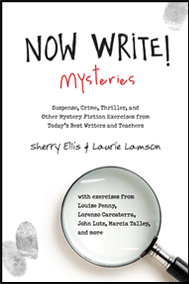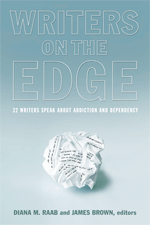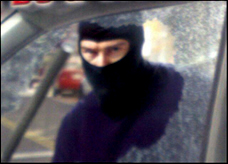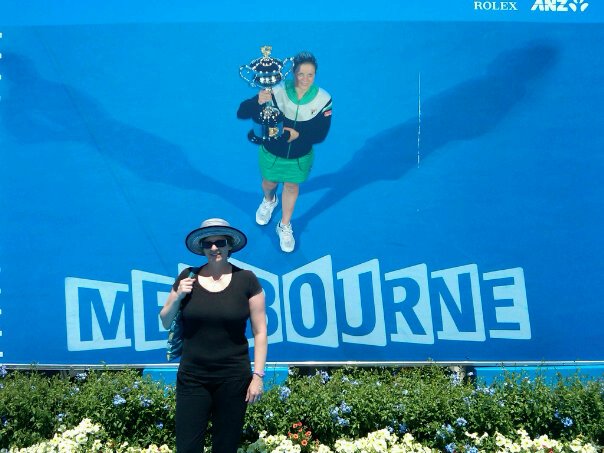Zoë Sharp
 About two years ago I came across a piece by Marcus Sakey on his blog at The Outfit about writing successful query letters to agents. It was excellent down-to-earth advice. So good, in fact, that every time I’ve taught a workshop, or done a speaking event where there are would-be authors, I recommend that they go and read Marcus’s blog.
About two years ago I came across a piece by Marcus Sakey on his blog at The Outfit about writing successful query letters to agents. It was excellent down-to-earth advice. So good, in fact, that every time I’ve taught a workshop, or done a speaking event where there are would-be authors, I recommend that they go and read Marcus’s blog.
Things have changed a little over the past couple of years, however, and I wondered if Marcus had any new tips to add to his original post. Hence the fact I invited him onto ‘Rati for Expect The Unexpected Tuesday to offer an updated version.
For the one or two of you who maybe are not familiar with him, Marcus Sakey is the bestselling author of five novels, three of which have been optioned for film. He has been called “A modern master of suspense” (Chicago Tribune), and “One of our best storytellers” (Michael Connelly).
His latest novel is THE TWO DEATHS OF DANIEL HAYES. Marcus is also the host and writer of the acclaimed television series HIDDEN CITY on Travel Channel.
When I speak at a writer’s conference, I’m often asked about finding an agent. And my response tends to piss people off.
I explain the concept of a query letter, and then I say that a properly-written one should result in at least 75% of agents requesting the manuscript.
People tend to disagree rather vehemently. To them, I can only respond: respectfully, you’re wrong.
I know because I had that success rate. In fact, once I had my query in its proper form, about 80% of the agents I queried requested materials.
Some people say that this isn’t realistic for today’s market. And publishing has changed since I signed with my agent in 2005. But while publishing has changed, the business model of agents has not.
Other people point out that I’m an established author. I wasn’t then. In fact, I had no credits whatsoever.
Still others say that there are too many variables in play for query letters to achieve that success rate. But remember, I didn’t say any query letter. I said a properly written one.
Before I go on, I should address the elephant in the room: whether or not you even need an agent or a publisher these days. After all, e-publishing, and especially Amazon, has fundamentally changed our business.
Whether or not to self-publish is a personal decision. There are a lot of great arguments for it: a higher royalty rate, direct control of the promotion and pricing and cover design, an expedient publishing process. Some authors, like my controversial buddy Joe Konrath, make the case that going with a traditional publisher at this point is akin to booking passage on the Titanic.
Me, I wouldn’t go that far. I believe there are a lot of benefits to traditional publishing. Foremost among them is the active involvement of a skilled professional editor. I can say with certainty that my editor has dramatically improved all of my books. I also believe that having a hurdle-clearing process benefits the overall quality of literature. And the self-publishing world is still akin to the Wild West; some people will make their fortunes, but plenty will die of dysentery.
 What will the publishing world look like in even one year, much less five? I have no idea, and neither does anyone else. Would I consider self-publishing? Absolutely. In fact, I have. I self-pubbed a short story collection called SCAR TISSUE, and am delighted I did.
What will the publishing world look like in even one year, much less five? I have no idea, and neither does anyone else. Would I consider self-publishing? Absolutely. In fact, I have. I self-pubbed a short story collection called SCAR TISSUE, and am delighted I did.
But this article really isn’t about whether or not to self-publish. Weigh the arguments. Consider your own abilities (Can you write fast enough to feed the beast? Do you believe an editor can improve your work? Does the safety of an advance and a contract provide you a better headspace to write novels?) as well as the work you’re willing to do (Do you want to spend time formatting e-books, writing promotional copy, and managing cover design? Do you have a platform to help you promote? Do you enjoy the rather constant effort of reaching out to potential readers?) and make up your own mind.
If you decide that you would like to try the traditional approach, this is how you do it.
First of all, finish the book. And I don’t just mean type “THE END.” If it isn’t polished to a high gleam, if it hasn’t been read by a dozen friends and re-written in response to their comments, then you aren’t ready to worry about Step Two.
But let’s assume that it is. The next thing you need to do is decide which agents to approach.
This is one of the ways you limit the number of variables in the equation. Only query agents who represent work like yours. My own agent, for example, specializes in crime fiction, thrillers, and some nonfiction. Sending him fantasy would be a waste of time. It’s not his market, and even if he did like it, you’d be better served by an agent who really knows your field.
How to do that? Go to your local bookstore or library, and bring a notebook. Find the section that matches your genre, and start pulling books down. In their acknowledgments, authors almost always thank their agent (if they don’t, you don’t want that agent anyway.) Focus on books that are somewhat similar to yours, but don’t obsess. Don’t try to pick a favorite in advance.
After three or four deeply boring hours, you should have a sizable list. To find their addresses, turn to the Internet. You can Google search, using quotes around their full name. You can also look at sites like EveryoneWhosAnyone.com and AgentQuery.com. Again, not fun, but necessary. Make a spreadsheet, and include the agency, the agent’s name, the authors they represent, the address and email, and sections for dates to track who you’ve sent letters and when.
Okay, so you’ve got a targeted list. Now it’s time to write the dreaded query.
It’s dreaded for a reason, which is that you already wrote the book. You slaved over every one of 350 pages. You know its intricacies, its subtleties, its moments of grace and its smelly underarms. Now you have to forget all that.
Here’s the key to writing queries. You’re not actually selling the book.
I want to repeat that: You are not selling the book. In fact, you could write a highly successful query for a book that does not exist.
All you’re doing is seducing the agent. You want to get them interested enough that they ask to see your manuscript. That’s it.
It’s like online dating. If you can write a charming email, you might get a date; if you get a date, who knows where it could lead. But try to put all your history and baggage in that first message and you won’t get any play. Instead, demonstrate that you’re worth someone’s time. That you are interesting, sincere, and respectful.
How do you do that? Well, for one, you’re polished. Your language is compelling and your presentation is perfect.
Also, you’re brief. Agents are busy. There are hundreds of other queries to read.
Finally, you are a storyteller. You know how to tease, how to intrigue, and you’re not afraid to put those wiles to work.
After a professional greeting (Mr. or Ms.), begin with a 1 – 2 line paragraph explaining that you are writing them because you know they represent X, and your book is similar. This shows that you have done your homework. It also begins to frame their expectations. By implication they know the genre and style of your work. This is also a good place to put the word count, because if it’s appropriate (70,000 – 120,000, depending on genre), that’s a hurdle you’ve already cleared.
Next, in 3 – 5 lines, sum up your story. This is the hard part, but it’s easier than most people make it. In essence, what you want to do is leave out the tangents, complications, minor characters, and themes. Remember, this is seduction. Focus on drama and stakes. Here’s mine:
For Danny Carter, retired thief turned respectable businessman, a normal life sharing a Lincoln Park condo with his loving girlfriend seems like the ultimate score–until his former partner comes looking for him. A hardened killer fresh out of Stateville, his partner wants to kidnap the son of Danny’s millionaire boss, and he needs help to pull it off. Doing the job could cost Danny his career, his relationship, and his freedom.
Refusing could cost him his life.
Did I leave out a lot? About 86,974 words. And man oh man did it hurt at first. But look at what it accomplished. By keeping the pitch brief, using only one name, and including significant stakes, I demonstrated that I know how to tell a story.
And that, my friends, is the point of the query letter.
Think about it. Agents get hundreds of these a week. Do you really think they remember them? Hell, I bet they forget the beginning of most by the time they reach the middle. You try and read 300 queries, see how fast your eyes glaze over.
So instead of trying to convey the beautiful bleeding soul that is your novel, just show an agent you know how to tell a story. That’s what makes them willing to read your manuscript.
Okay, next paragraph. This is the place for awards, previous publications, and nepotistic hookups. Will Stephen King blurb you? Is Oprah your aunt? Do you run a wildly successful blog? Put it in there.
Also, if you have some experience that informed the book, consider including it. Be judicious: if you’re hawking a mystery novel, by all means mention that you’re a cop. If your character likes to cook and so do you, leave it out. In fact, if you have nothing to mention here, leave the whole damn ‘graph out. Never write just to fill space.
Finally, end with what in advertising is known as a call to action: “May I send you the finished manuscript?”
If you’re writing a conventional query, you’re done. However, these days I recommend you query via email. There are a couple of reasons. First, e-queries are cheaper and faster and better for the environment. Second, you can include a little taste of your novel. Do it like this: “Page one of <insert compelling title here> follows. May I send you the finished manuscript?”
Then, after your name and contact info, paste in the first page or so of the novel. Do not attach it, as that will freak people out about viruses. Also, be sure to check your formatting, since email can screw that up, and manually insert line-breaks to double-space. Finally, make sure that you end on a minor cliffhanger, something interesting.
The idea is simple. The agent has just read your brief and compelling query letter. They’re intrigued. It’s the easiest thing in the world to scroll down and read a little more. And then, because your first page is dynamite (right?), hopefully intrigued upshifts to excited. Simple as that.
A good query letter is not written in a day. Write it and rewrite it. Have friends and critique partners read it. Buff the hell out of it. Once you feel like it’s ready, start sending out waves, say 5 – 10 a week.
Doing it in waves is crucial, because it will tell you how effective your query letter is. (Note: I didn’t say how interesting your book is. Query letters and novels are separate things.) Remember, your query letter isn’t finished until you’re seeing about a 75% request rate.
 When you do get a bite, remember to write REQUESTED MATERIALS in big letters on the envelope or the email subject so that your manuscript hits the top of the pile. Then do a little happy dance and go send out another couple of queries.
When you do get a bite, remember to write REQUESTED MATERIALS in big letters on the envelope or the email subject so that your manuscript hits the top of the pile. Then do a little happy dance and go send out another couple of queries.
Of course, the painful part is that for all the manuscript requests, you’ll get plenty of rejections. I did. This is a subjective business, and some very big names told me they didn’t like the book, that it lacked tension, that they didn’t think it had a market. Which made it all the sweeter when CBS Sunday Morning called THE BLADE ITSELF “how immortality gets started,” or when we sold the film rights to Ben Affleck.
Don’t sweat the rejections. Have a beer, then send another query. And great good luck!
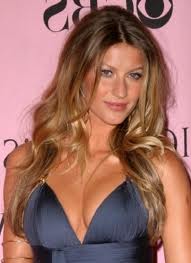 (Sorry, ladies, I know you think this stuff is silly, but we guys really do fantasize like this, especially those of us with serious performance anxieties. You dream about chocolate and warm baths, we dream about making Gisele Bündchen forget she ever even met Tom Brady. What can I tell you?)
(Sorry, ladies, I know you think this stuff is silly, but we guys really do fantasize like this, especially those of us with serious performance anxieties. You dream about chocolate and warm baths, we dream about making Gisele Bündchen forget she ever even met Tom Brady. What can I tell you?)

